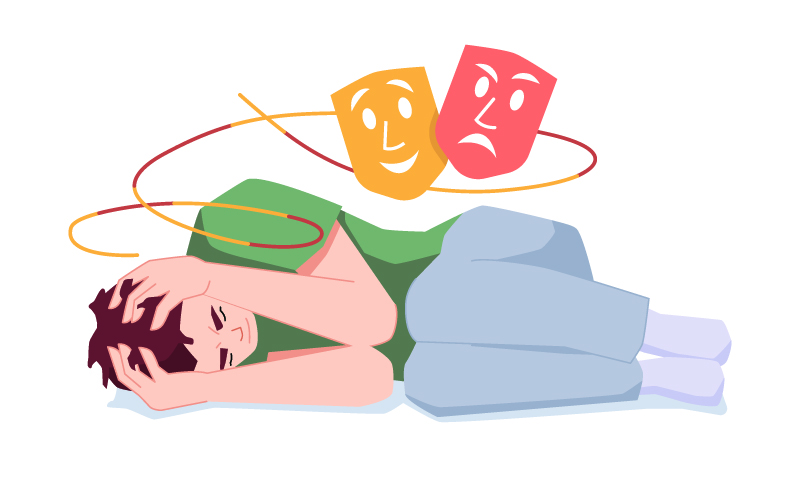Psychiatric Services
Dr Gaffoor offers valued patients a wide array of psychiatric services. He can assist with the treatment, referrals and medical management of psychiatric patients to ensure that they receive consistent, reliable medical care.

Mood Disorders
A mood disorder is a psychiatric condition which primarily affects your emotional state. These cause you to experience long periods of extreme moods, such as mania and Depression. Situational mood changes are entirely normal. To be diagnosed with a mood disorder, your symptoms must be consistently present for at least several weeks.
Mood disorders can be debilitating, affecting your ability to learn, work and care for yourself and others. The two most common mood disorders Dr Gaffoor sees are Bipolar Disorder and Depression.
Bipolar Disorder is generally defined by swings in emotion or moods, from mania to Depression. During depressive episodes, you may feel sluggish and fatigued, with no energy to get up or look after yourself. You may also feel depressed with no motivation. These symptoms may last for several weeks at a time. During manic episodes, you may experience a sudden burst of energy and a massive increase in activity.
Anxiety and Depression
Anxiety and Depression are two of the most prominent conditions affecting people today. These conditions may seem distinct, but they share several symptoms that can make a diagnosis difficult. Dr Gaffoor has seen many patients who suffer from Anxiety and Depression and is highly skilled in identifying symptoms and treating these psychiatric conditions.
The primary symptom of Depression is a lingering low, hopeless, or sad mood. Whereas Anxiety typically involves overwhelming feelings of worry, stress, nervousness, and fear.
Anxiety disorders tend to go beyond worrying about unexpected or challenging circumstances. People diagnosed with Anxiety tend to feel overwhelming, excessive worry or fear about situations or circumstances that do not warrant it. They sometimes also experience worry or fear with no cause.
If you have been feeling overwhelming emotions, like Depression, sadness, stress, fear or worry, don't hesitate to get in touch with Dr Gaffoor and schedule an appointment as soon as possible.


Post-partum Depression
Childbirth can trigger many emotions - happiness, excitement, Anxiety and even Depression. Most new mothers experience some form of "baby blues" after the birth of a child. This generally includes mood swings, crying, difficulty sleeping, and Anxiety. These symptoms may start within the first few days after childbirth and can continue for up to two weeks.
In some cases, mothers experience a much more severe form of Depression, called Post-partum Depression. In these cases, "baby blues" symptoms are far more extreme and tend to last much longer. Symptoms may also include lack of appetite, excessive crying, severe mood swings, feelings of hopelessness, insomnia, anxiety and panic attacks, fatigue, and even thoughts of harming yourself or your baby.
As a new mom, these experiences can be scary and confusing. It is essential to schedule an appointment with Dr Gaffoor if your symptoms don't subside within 2 weeks or if they get progressively worse over time. Please seek help if your symptoms prevent you from caring for yourself and your baby or if you have any thoughts of harming yourself or your child.
Psychotic Disorders
Psychotic disorders are extreme mental disorders which cause abnormal thinking and perceptions. Hallucinations and delusions are generally symptoms of psychotic disorders and can occur simultaneously.
Delusions are described as false beliefs. Examples of delusions include believing that someone or something is sending you secret messages or that you're the ruler of the universe.
Hallucinations are false perceptions, such as hearing, seeing or feeling things that are not there.
Psychotic disorders make it extremely difficult for someone to think clearly. As a result, people with psychotic disorders generally cannot make good decisions, can't communicate effectively, and struggle to understand reality. When symptoms are severe, people with psychotic disorders generally cannot handle daily life. As a result, they often need medical intervention to control their symptoms and stay in touch with reality.
Most psychotic disorders are treated with a combination of medication and psychotherapy. Antipsychotic medications effectively manage the worst symptoms of psychotic disorders, such as delusions and hallucinations. Many people with psychotic disorders can lead an everyday life with proper treatment.


